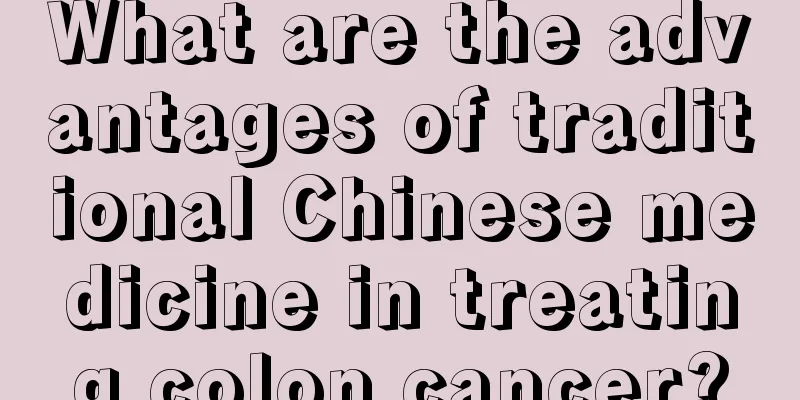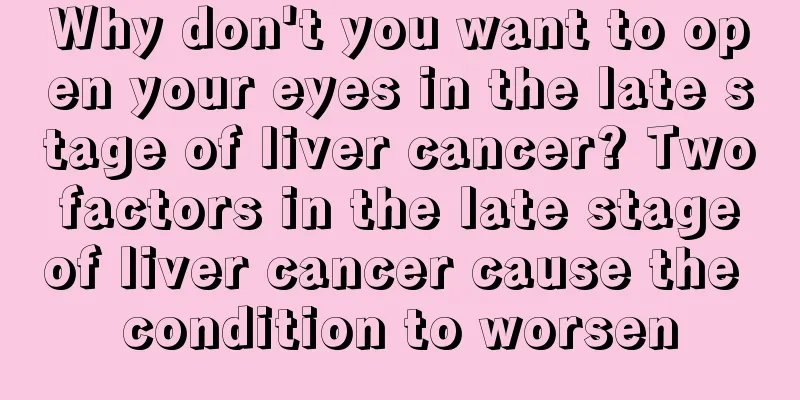How to differentiate nasopharyngeal carcinoma from nosebleed and how to provide care

|
Symptoms of nasopharyngeal cancer sometimes manifest as nose bleeding, but there are certain differences between the two. Below, the editor will introduce to you: How to distinguish nasopharyngeal cancer from nose bleeding? How to take care of it? Nasopharyngeal carcinoma mainly occurs on the top and side walls of the nasopharyngeal cavity. It is one of the most common tumors in my country and has become a major killer that seriously threatens people's health and life. Nasal bleeding is often an early symptom of nasopharyngeal carcinoma, especially bleeding in the early morning. If the nosebleed is caused by dryness or inflammation of the nasal cavity, the bleeding time is usually not long, and the bleeding can be stopped by tilting the head or pressing; the bleeding of nasopharyngeal carcinoma is repeated and continuous, and then there will be aggravated symptoms, accompanied by tinnitus, hearing loss, ear blockage and other symptoms. At this time, you should go to the hospital for a nasopharyngeal endoscopy to make a correct diagnosis and treatment. Because nasopharyngeal cancer patients are affected by the disease, have heavy psychological burdens, poor appetite, and low resistance, family members should be guided to encourage patients to eat, and give them high-protein, high-vitamin, low-fat, easily digestible foods, such as beans, milk, fungus, carrots, etc. Tell patients to quit smoking and drinking, avoid eating raw, cold, hard food, spicy food, and moldy food. At the same time, guide family members to create a clean and comfortable eating environment for patients, pay attention to color, aroma and taste, provide patients with delicious food, and provide patients with rich nutrition. The diet should be balanced, eat more vegetables and fruits, and give less oil, light, high protein, high calories, high vitamins, and more iron. Avoid smoking and drinking, and avoid irritating the oral and nasal mucosa. After radiotherapy, if the food is tasteless or has a peculiar smell and the oral mucosa reacts, encourage the patient to eat small meals frequently. If the oral reaction is severe, give a semi-liquid diet and encourage drinking more water. From the above, we can see that when the nose bleeds, we must pay attention. If we cannot judge clearly, we must seek medical attention in time to avoid missing the best time for treatment. |
<<: Can rhinitis lead to nasopharyngeal cancer? How to prevent it?
>>: How many centimeters above which stomach cancer is not considered early stage
Recommend
Can baking soda be used to wash the face every day?
Can baking soda be used to wash your face every d...
Can blood type also be used to distinguish people who are susceptible to gastric cancer?
Gastric cancer is a malignant tumor with a very h...
What are the advantages of interventional treatment for neck, shoulder, waist and leg pain
Interventional therapy is a relatively innovative...
Is drinking red wine before bed like chronic suicide?
There are many types of wine, among which red win...
Do I need to fast for blood test?
I believe everyone is familiar with routine blood...
How to prevent recurrence of clear cell testicular cancer
Patients with testicular cancer are in great pain...
What foods are good for esophageal cancer patients? Dietary principles for esophageal cancer patients
Esophageal cancer is also known as esophageal can...
What medicine can pregnant women take for headaches
There are many pregnant women in our lives. Pregn...
Be careful when choosing treatment for advanced liver cancer
With the progress of society, the living standard...
Is it serious to have pheochromocytoma
Pheochromocytoma can be said to be a relatively s...
How to clean chewing gum
Chewing gum is the most commonly used snack among...
What are the early signs of colon cancer?
The colon starts from the cecum and ends at the r...
What are the methods for diagnosing lung cancer in the elderly? 10 methods for diagnosing lung cancer in the elderly
Lung cancer is a disease whose symptoms are not v...
What to do if the house is too humid
If the humidity in the house is too high, you sho...
What medicine can relieve the pain of bile duct cancer
Patients with bile duct cancer feel very uncomfor...









